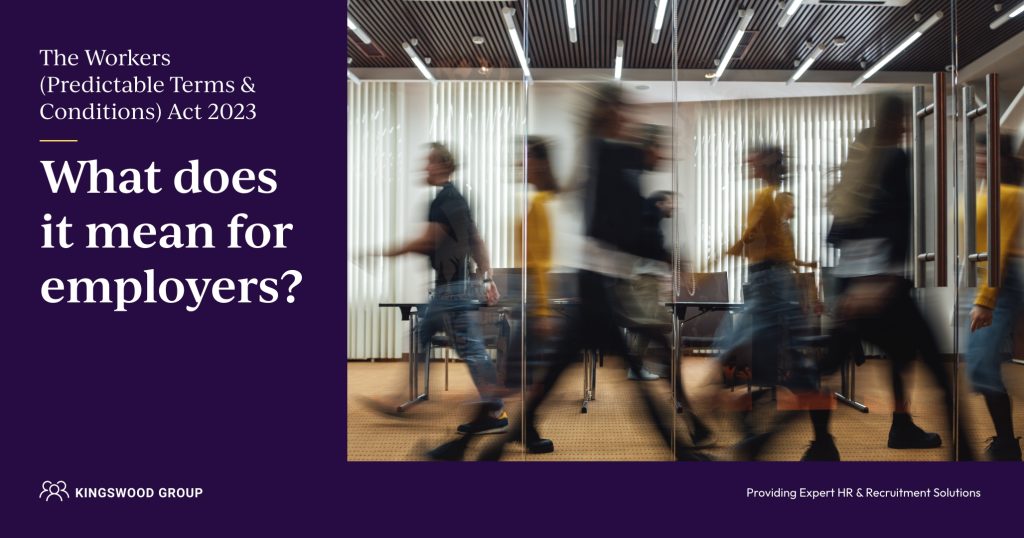
The Workers (Predictable Terms and Conditions) Act 2023 has received Royal Assent and is expected to come into force in September 2024. It introduces a new statutory right for atypical workers to request a more predictable working pattern by promoting constructive conversations between workers and employers regarding their working patterns..
The new law addresses issues related to atypical contracts, including zero-hours contracts, by providing more predictability in working hours.
Under this new law, workers can formally apply to change their working pattern to make it more predictable if their existing pattern lacks certainty in terms of hours or times worked or if they are on a fixed-term contract for less than 12 months. Employers must respond to such requests within one month.
Acceptance of requests will lead to more predictable terms and conditions for workers, enhancing job satisfaction and potentially resulting in better staff retention.
These include support for employee parents of newborn babies admitted to neonatal care, ensuring fair treatment of tips and service charges, enhanced protection for pregnant women and new parents, provisions for unpaid carers, and the right for millions of employees to request flexible working conditions.
Key points to note include:
- Worker must have a defined work history with their employer and the qualifying period is likely to be 26 weeks’ service although those weeks will not need to be continuous..
- The right will apply to the following:
- workers whose existing working patterns lack certainty in terms of the hours or times they work;
- workers on fixed-term contracts of 12 months or less (who are able to request a longer fixed-term or the removal of any provisions relating to fixed-term);
- agency workers (who can make their request either to the agency or the hirer provided they meet certain qualifying conditions)
- A maximum of 2 applications can be made in any 12-month period
- The application must specify the change being applied for and the date it should take effect. The requested predictability could relate to hours of work, days of work or period of engagement.
- Employers will be required to deal with any requests in a reasonable manner and notify the worker of their decision within one month.
- Requests may be refused on any of several specified grounds. There are currently six listed in the Act, including the burden of additional costs or there being insufficient work during the periods the worker has asked to work.
- It is important to note that the Secretary of State reserves the right to add more grounds so the list of grounds for refusal may expand.
- If a request is granted then employers must offer the new terms within two weeks of granting the request.
- Employers cannot make detrimental changes to other contractual terms at the same time as making the changes required as a result of the approved request for predictability.
Acas will be producing a draft Code of Practice for public consultation in the Autumn which will provide guidance on how to handle requests.
At Kingswood Group, as the ‘go to’ HR service and support provider, we will continue to monitor the situation, and will keep our clients and contacts informed as we learn more about the new Code of Practice and its consultation.
In the meantime, if you have any questions about this, or any other HR or ER related matter, please do not hesitate to contact us on 01245-204450 or HR@kingswoodgroup.org.